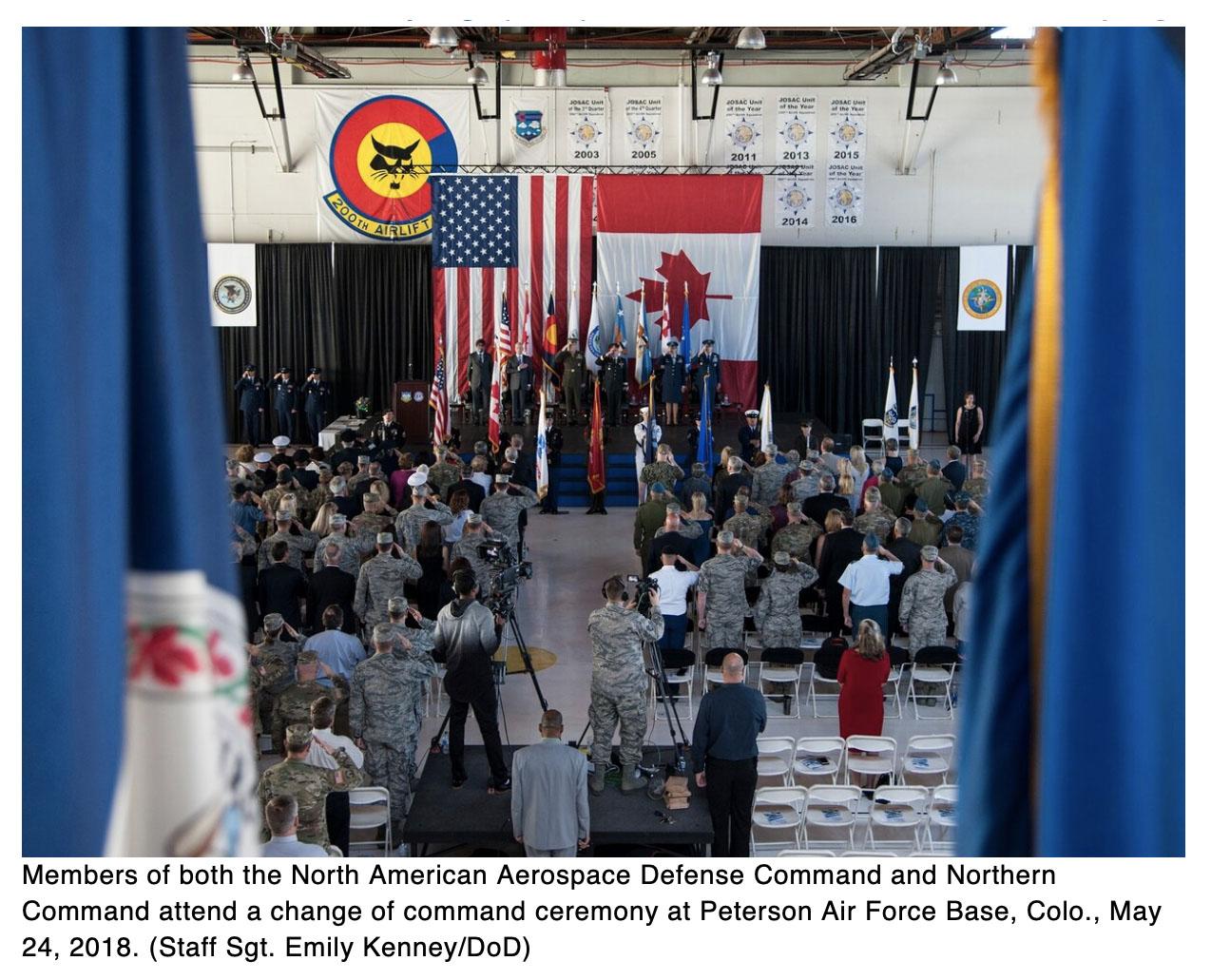PETERSON AIR FORCE BASE, Colo. — The pandemic has left the outsized population of Canadian troops deployed to Colorado Springs and their families isolated in a foreign land, with crossing the border meaning spending two weeks in quarantine.
Now, Canadian military leaders here are trying to figure out how to deliver holiday cheer to the nearly 150 families here, The Gazette reports.
“As military members, we sign up for all sorts of hardships,” said Lt. Col. Apollo Edmilao, who heads the support unit for Canadian troops here. “Our families really didn’t sign on the dotted line. They are associated with us for better or worse.”
The issue for Canadian troops isn’t that the border is closed. But going home got a lot more complicated with the virus. And with most troops getting less than a month of leave a year, a two-week quarantine has their families staying put.
“As you can imagine, adding 14 days on top of any holiday you are trying to take is a burden,” Edmilao said.
The quarantine practice was put in place by the Canadian government as part of a largely-successful program to limit the spread of coronavirus. Among Canada’s 37 million residents, there have been just 235,000 people infected by the virus. In California, which has about the same number of residents as all of Canada, 961,000 have been infected.
But the quarantine policy has meant that jetting home for a weekend isn’t an option for the Canadian troops here.
“It’s hard on them, not being able to go back to see moms and dads for birthdays and things like that,” Edmilao said.
Colorado Springs is home to Canada’s largest permanent military presence in a foreign land as part of its commitment to the North American Aerospace Defense Command. The Peterson Air Force Base command was formed under a 1958 treaty that made defending the continent a joint task of the United States and Canada.
And for 62 years, Canadians have worked in Colorado Springs.
It’s generally a deployment that families look forward to, with stiff competition to earn a spot here.
Edmila, who serves in the Royal Canadian Air Force, said the Pikes Peak region welcomes the Canadian contingent with open arms.
“I saw it before and during the pandemic,” he said. “I wanted to thank the community for decades, over six decades, of support of Canadian armed forces members.”
Canadian traditions have found a home here. The largest Canada Day party outside of Canada is held in Colorado Springs every July 1.
Canada’s Remembrance Day and America’s Veterans Day are honored together in a joint ceremony that regularly draws hundreds, with America’s “Taps” and Canada’s “Last Post” played to honor the dead.
The Armed Forces Day rites of May are a binational celebration too, with both anthems played while the maple leaf and stars and stripes are marched in by an honor guard consisting of troops from both nations.
But not in 2020.
“Those unfortunately for all the right reasons had to be canceled outright,” Edmilao said.
Like their American neighbors, the Canadians here are making do.
Videoconferencing has filled in for in-person visits home.
Edmilao’s support unit has worked to provide what comforts of home they can.
But the holiday season will require something more.
“The Canadian armed forces have a lot of traditional events centered around the holiday season,” Edmilao explained. “We are having to start planning for different ways to execute those traditional activities.”
Many of the traditions can be traced back to the British Empire.
Others are newer, like senior officers hosting “sticky floor” events where they mingle with junior subordinates often over adult beverages.
Leaders at all levels host “in-homes” over the holidays to invite their troops for a family-style dinner.
And Christmas dinner is something unlike anything seen at bases south of the border. The most junior enlisted troops sit at the head table and dine like kings, with colonels and generals donning aprons to serve the food and bus the dishes.
“We are planning all sorts of alternates to the traditional holiday parties we usually have,” Edmilao said. “Instead of gathering people in a big gathering, we will look at smaller gatherings or maybe going out to individual homes to deliver.”
Amid the holiday planning, the Canadians are also keeping their minds on the mission here.
NORAD troops work in shifts 24 hours a day to monitor the air, sea and space surrounding the continent. From escorting Russian bombers near the coast to monitoring missile launches across the planet, NORAD remains on permanent alert.
“We are very cognizant of the no-fail mission of NORAD to protect the homelands of Canada and the United States,” he said.
Canadian troops, like their American counterparts, are checked for COVID-19 symptoms daily and work spaces are sanitized on a regular basis.
So far, of the entire NORAD Canadian contingent in the United States, only one service member has contracted the virus. And that service member wasn’t stationed in Colorado Springs, Edmilao said.
Leaders at NORAD are also mindful of another no-fail mission every Christmas Eve.
It started with a mistake in a Gazette advertisement in 1955 that published an incorrect number for children to call Santa that connected them to a colonel overseeing air defense in Colorado.
NORAD embraced the tradition with American and Canadian troops volunteering to take calls from children all over the planet to give them the latest tracking data on Santa’s global journey.
Planning for the 2020 version is underway, but conference rooms full of telephones and packed with people are likely out.
“Obviously things will have to change,” Edmilao said.
But NORAD will make do, and the calls will be answered.
And the command’s Canadians may finally get some time at home, too.
The Canadian element is planning a period that allows some troops to take an extended leave. Those vacation days that have been piling up can be spent in a leave period that accommodates a two-week quarantine, Edmilao said.
“It is a nice logical time to use that leave period to go back to Canada,” he said.
Top





